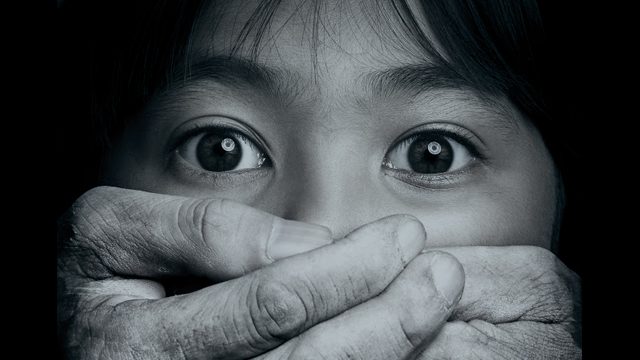SUMMARY
This is AI generated summarization, which may have errors. For context, always refer to the full article.
 Tito Sotto and Waseem Azeem, the man who strangled his sister, Pakistani social media celebrity Qandeel Baloch, have a lot in common.
Tito Sotto and Waseem Azeem, the man who strangled his sister, Pakistani social media celebrity Qandeel Baloch, have a lot in common.
When a woman stepped out of the box of propriety meant to cage her in, these two men moved in. That woman must be reprimanded. She needs to be put in her place where passive obedience and unquestioning compliance are to be given at all times and with no exceptions.
Sotto believes it is his responsibility to remind women what is acceptable behavior by shaming them and blaming them for being raped or sexually assaulted.
Azeem believes it is his duty to protect his family’s honor and killed his sister who shamed them with her provocative social media posts.
Both men believe, with utmost conviction, that women deserve to be policed and punished this way because they are women.
“Kababae mong tao, pa-shot shot ka pa,” [You’re a woman and you drink alcohol?] Tito Sotto lashed out, having no qualms about admonishing a woman who shared that she had been sexually assaulted on national television.
“Siguro naka shorts ka pa!” [You must have been wearing shorts!] his buffoon piped in echoing Sotto’s sentiments, as mindless minions often do.
“Women are supposed to be in the home where they are not to be seen,” said Azeem.
They both believe that men hold a higher position over women and can do and say whatever they want about them. Any indication of independent thought and spirit by a woman will be shot down and will be shamed.
Both men think they have a moral obligation to do these things. They don’t think they need to justify their actions, it is enough that they are men – they are expected to impose rules, not follow them.
Both men are influenced by their interpretation of religion. Religion is their defense and their protection, it gives them the right to condemn and punish.
“No regrets”
No wonder it does not work when Sotto is asked how he would feel if his daughter, wife or female relative were raped.
Such a question uses the language of empathy and compassion. It is a language Sotto does not speak; answering such a question would require emotional intelligence Sotto does not have.
All Sotto understands are his delusions of what constitutes honor and his outdated notions of what is expected of women, and above all, his belief that he is infallibly right.
“It was a simple reaction. A married lady should not be drinking out late at night with men other than her husband,” he said, unmoving and unapologetic when netizens rose up in protest. (READ: Tito Sotto reacts to ‘victim-blaming’ issue on ‘Eat Bulaga’)
Like him, Azeem believes that he did the right thing. “I have no regrets,” he said in his police statement after his arrest. “People will think of me with honor because of what I did.”

Controlling is not caring
The oppression and the control of women starts so early on in life and so subtly that we do not even notice it. For as long as we can remember, limits were set for us. There were things that we could not do simply because we are girls.
We can’t play outside (girls shouldn’t be seen all over the streets or pakalat-kalat). We can’t rough it out (that’s unladlylike). We shouldn’t laugh so loud (that’s just improper); We shouldn’t talk too much (that would be nagging). We shouldn’t wear revealing clothes (only whores do that).
While our brothers and other male members of the family sat around watching TV and enjoyed a beer, we were expected to cook dinner and clean up after.
The list goes on and on.
We think it is our parents’ way of caring. And yes, as a young child growing up, it serves its purpose of providing guidance.
It is difficult to outgrow this “controlling-caring” dynamic. Because once our parents start to let go, someone else sets in to control and moderate all in the name of caring about us and protecting us.
So when our boyfriend tells us what to wear and not to stay out too late at night, we think he is being sweet. We find it hard to recognize it as a way of exercising control.
We don’t recognize it as policing our behavior and setting limitations because that’s what people who care about us do, right? They only want the best for us.
Which is probably why many men and women agreed with Sotto and defended him.
It is the same reason why many Pakistanis rose to Azeem’s defense. Even before he strangled Baloch, many were already threatening to rape and kill her. He just did the job for them.
In a rare move, the Pakistani government reportedly prohibited Baloch’s family from forgiving their son.
The option of the aggrieved party to “forgive” the perpetrator is the loophole that allows many of the estimated 500 honor killings to go unpunished.
Defending these men and blaming the women they victimize breeds rape culture.
When we ask a rape victim what she was wearing, how much she had to drink and imply that she brought being raped upon herself, that is rape culture. We pass the blame and shame onto the victim and in the process, let the perpetrator off the hook.
Rape culture is our version of “forgiveness” for an honor killing. – Rappler.com
Add a comment
How does this make you feel?
There are no comments yet. Add your comment to start the conversation.